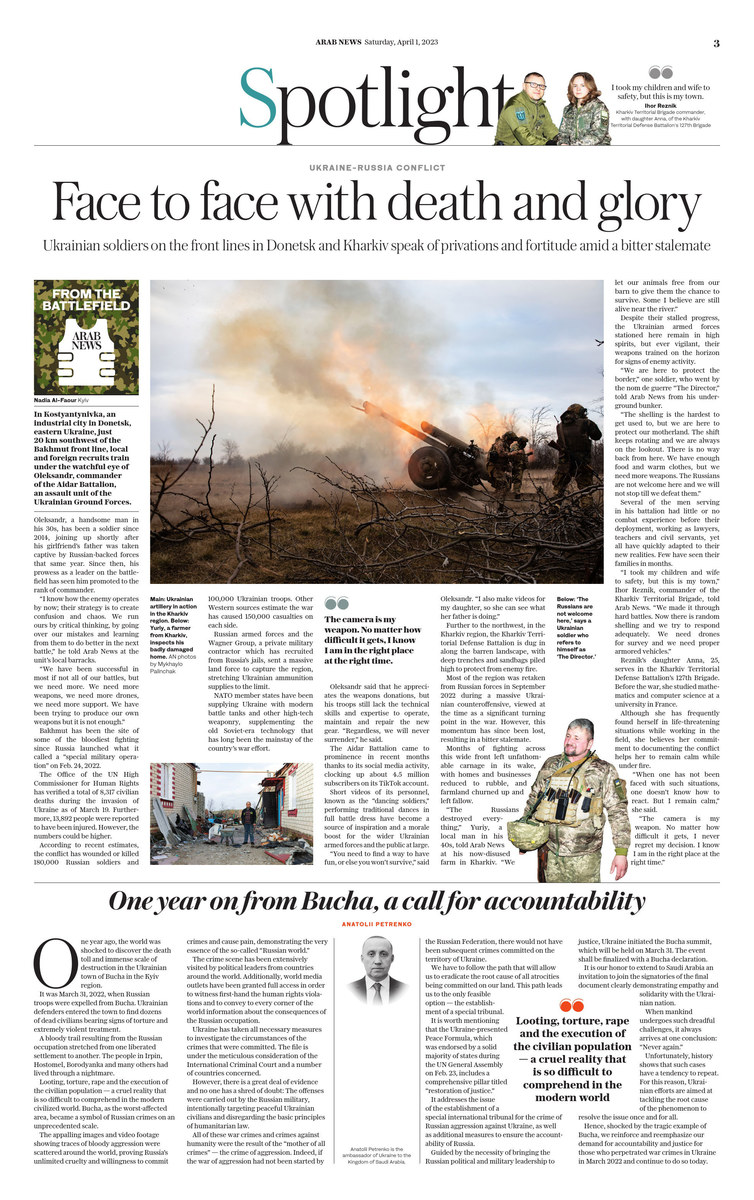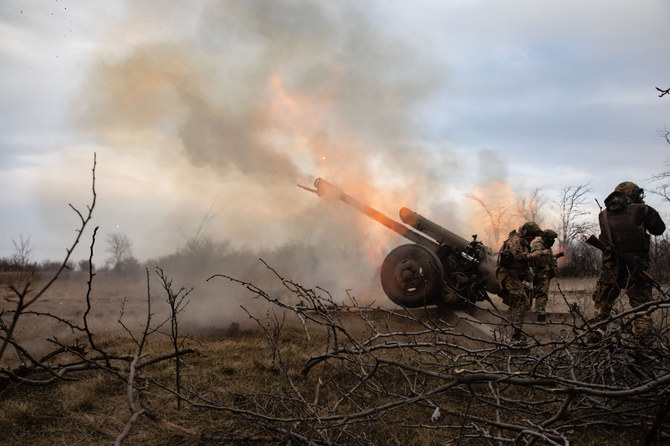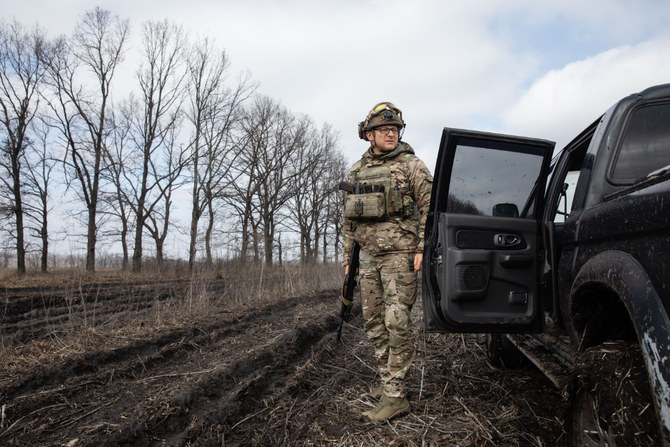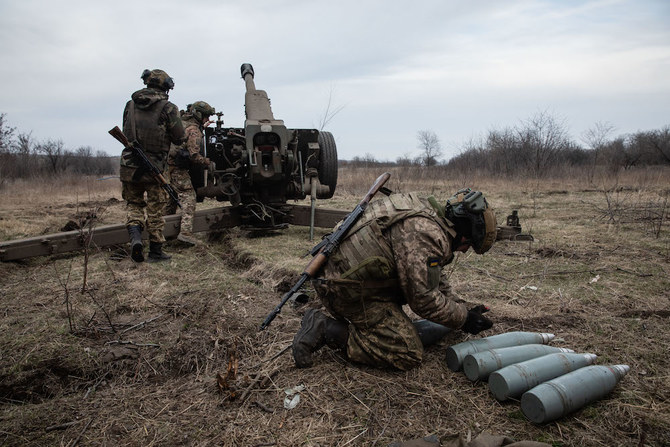DONETSK: In Kostyantynivka, an industrial city in Donetsk, eastern Ukraine, just 20 kilometers southwest of the Bakhmut front line, local and foreign recruits train under the watchful eye of Oleksandr, commander of the Aidar Battalion, an assault unit of the Ukrainian Ground Forces.
Oleksandr, a handsome man in his 30s, has been a soldier since 2014, joining up shortly after his girlfriend’s father was taken captive by Russian-backed forces that same year. Since then, his prowess as a leader on the battlefield has seen him promoted to the rank of commander.
“I know how the enemy operates by now; their strategy is to create confusion and chaos. We run ours by critical thinking, by going over our mistakes and learning from them to do better in the next battle,” he told Arab News at the unit’s local barracks.
“We have been successful in most if not all of our battles, but we need more. We need more weapons, we need more drones, we need more support. We have been trying to produce our own weapons but it is not enough.”
Bakhmut has been the site of some of the bloodiest fighting since Russia launched what it called a “special military operation” on Feb. 24, 2022.
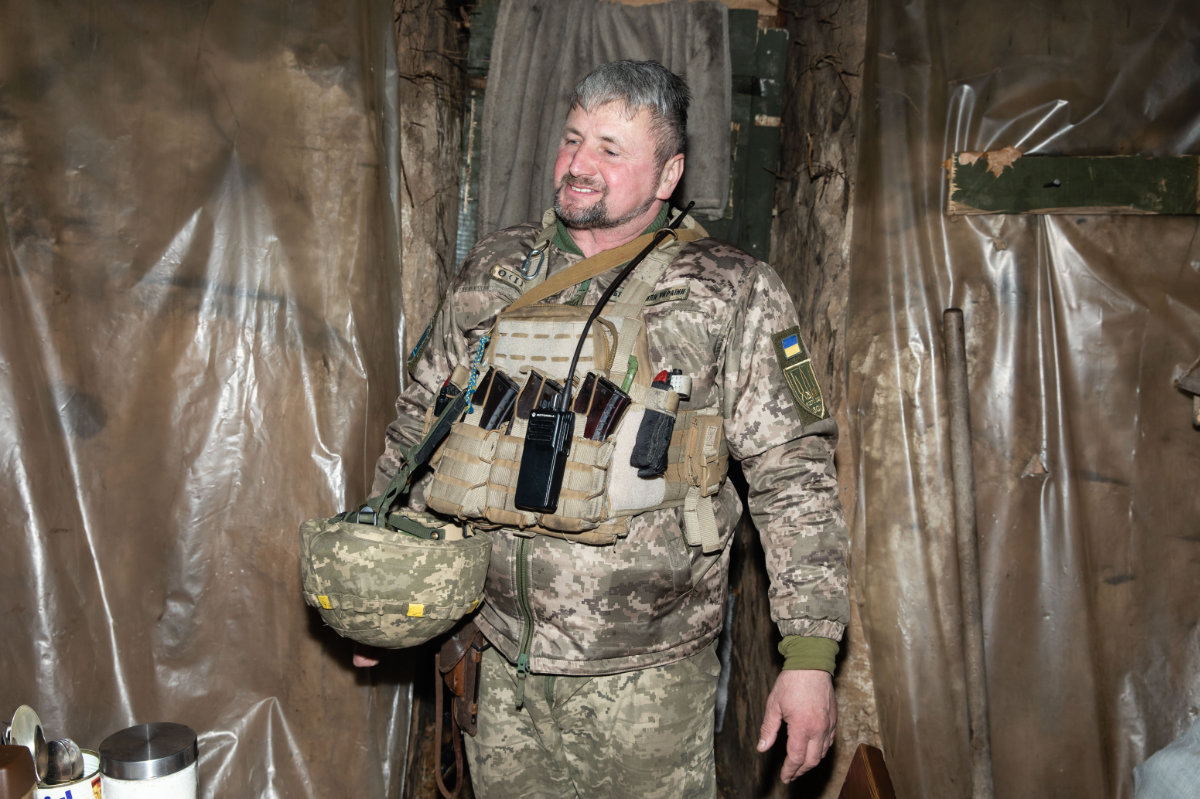
The Director (nom de guerre) inside underground bunker by the Russian border in Ukraine's Kharkiv region. (AN photo by Mykhaylo Palinchak)
The Office of the UN High Commissioner for Human Rights has verified a total of 8,317 civilian deaths during the invasion of Ukraine as of March 19. Furthermore, 13,892 people were reported to have been injured. However, the numbers could be higher.
According to recent estimates, the conflict has wounded or killed 180,000 Russian soldiers and 100,000 Ukrainian troops. Other Western sources estimate the war has caused 150,000 casualties on each side.
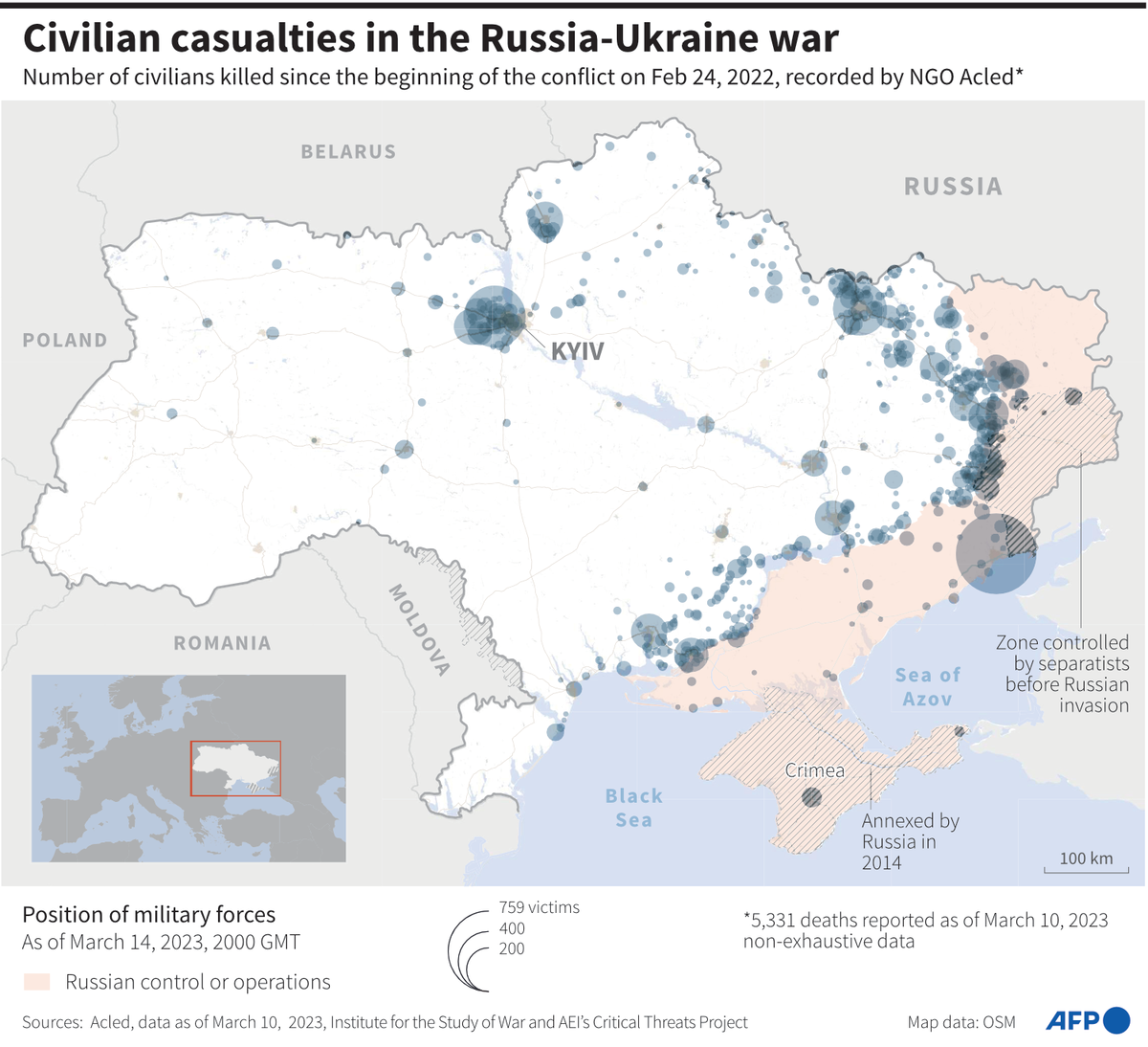
Russian armed forces and the Wagner Group — a private military contractor which has recruited from Russia’s jails — sent a massive land force to capture the region, stretching Ukrainian ammunition to the limit.
“We see the Russian soldiers trying to emulate our strategy,” said Oleksandr. “The Wagner soldiers consist of former convicts and drug addicts. They are running low on recruit numbers and have been relying on prisons to fill in their ranks.”
In their attempt to punch through Ukrainian lines, Russian forces have been using a technique known as the “fox den” strategy, in which a grenade is attached to a drone and dropped into Ukrainian trenches from above.
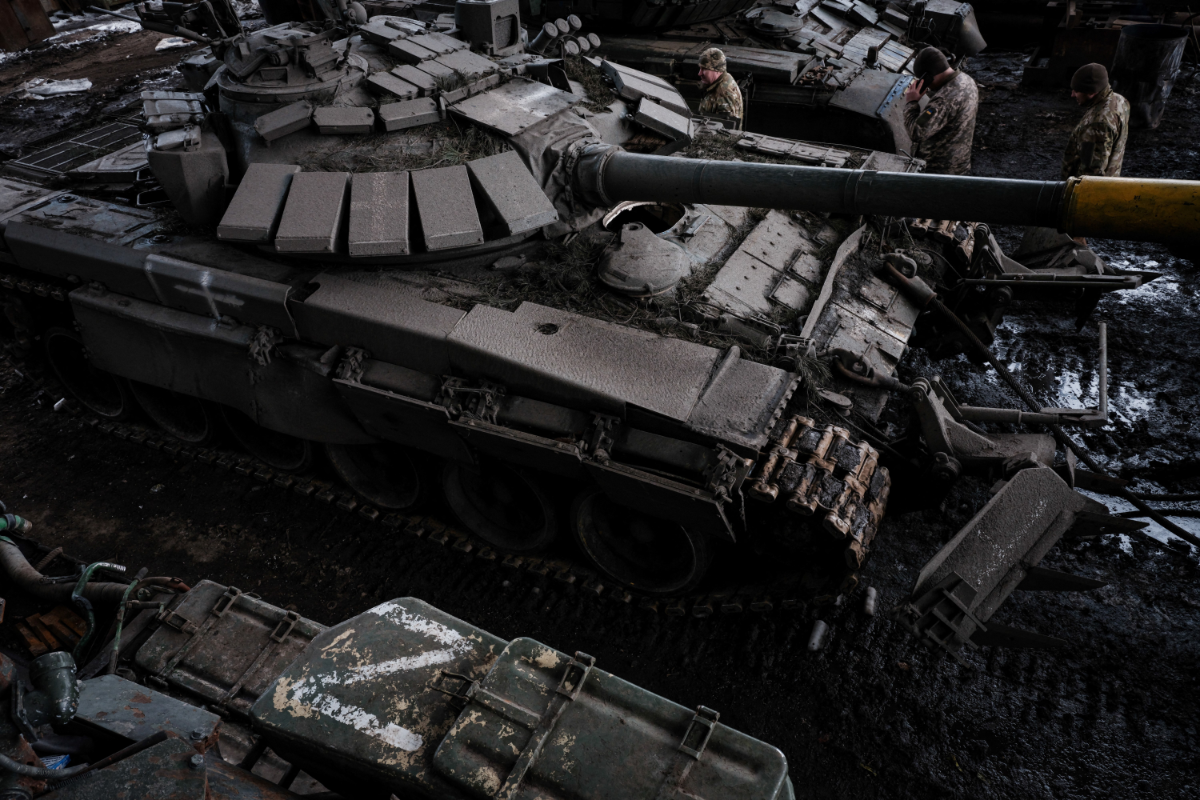
The Z letter, a tactical insignia of Russian troops in Ukraine, is seen on the captured Russian towed artillery to be refurbished at the brigade's workshop in Kharkiv region on February 20, 2023. (AFP)
Nevertheless, Russian losses on this stretch of the battlefield have been high, with an attrition rate more severe than that of the Ukrainian defenders. “We do not underestimate our enemy, but they keep making the same mistakes. I have a feeling they do not learn,” said Oleksandr.
“Russian walkie talkies have fallen into our possession. What we heard shows they’re stubborn. Their generals don’t care how — the command is to get the job done no matter what, no matter the cannon fodder.”
NATO’s member states have been supplying Ukraine with modern battle tanks and other high-tech weaponry, supplementing the old Soviet-era technology that has long been the mainstay of Ukraine’s war effort.
Oleksandr says he appreciates the weapons donations, but says his troops still lack the technical skills and expertise to operate, maintain and repair the new gear. “Regardless, we will never surrender,” he said.
The Aidar Battalion came to prominence in recent months thanks to its social media activity, clocking up some 4.5 million subscribers on its TikTok account.
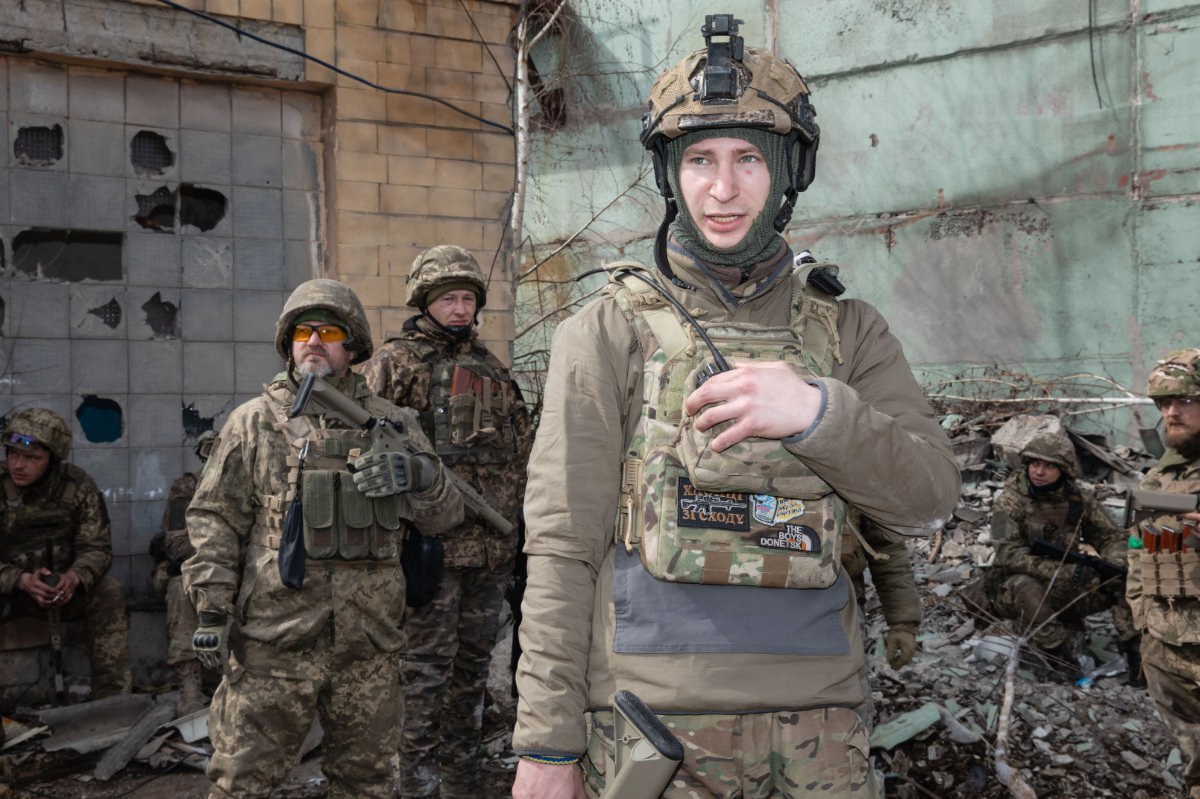
AIDAR Assault Battalion soldier at an undisclosed base in Kostyantinivka, Donetsk, in Ukraine. (AN photo by Mykhaylo Palinchak)
Known as the “dancing soldiers,” short videos of its personnel performing traditional dances in full battle dress have become a source of inspiration and a morale boost for the wider Ukrainian armed forces and the public at large.
“You need to find a way to have fun, or else you won’t survive,” said Oleksandr. “I also make videos for my daughter, so she can see what her father is doing.”
Further to the northwest, in the Kharkiv region, the Kharkiv Territorial Defense Battalion is dug in along the barren landscape, with deep trenches and sandbags piled high to protect its personnel from enemy fire.
Most of the region was retaken from Russian forces in September 2022 during a massive Ukrainian counteroffensive, in what was viewed at the time as a significant turning point in the war. However, this momentum has since been lost, resulting in a bitter stalemate.
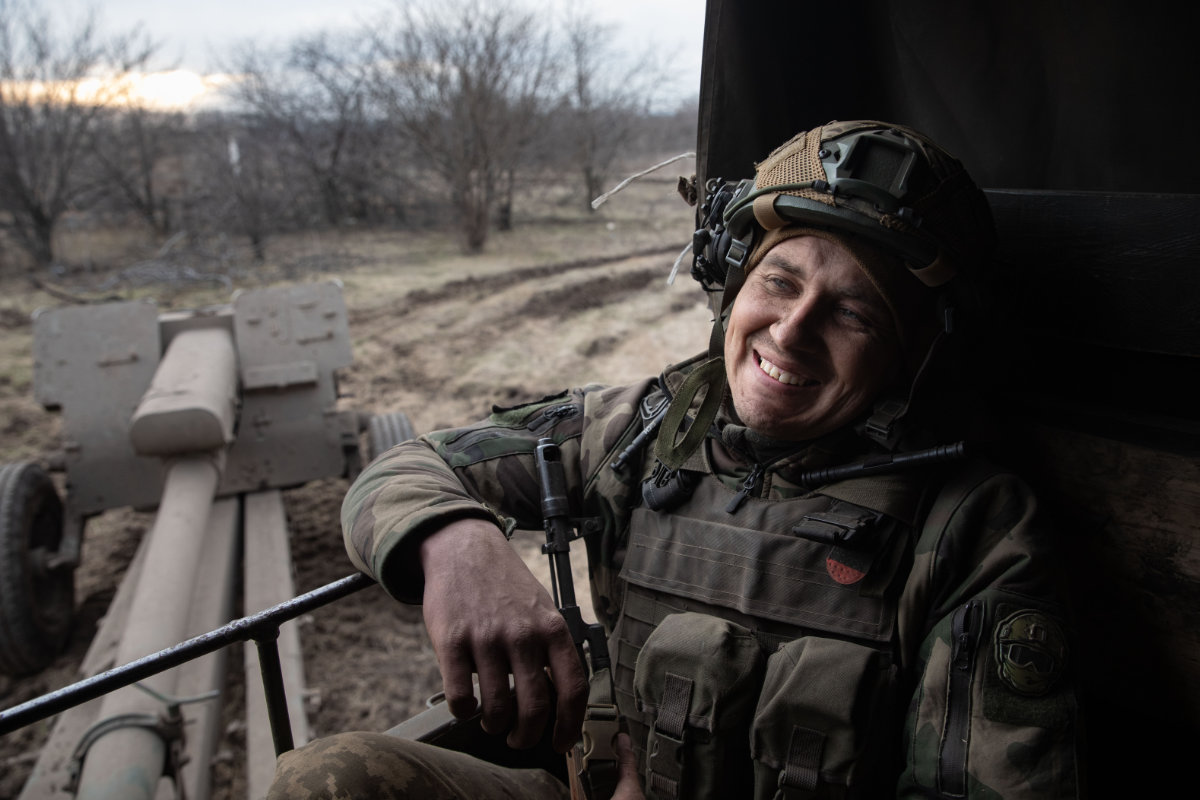
Ukrainian artillery unit soldier in Kostyantinivka, Donetsk. (AN photo by Mykhaylo Palinchak)
The months of fighting across this wide front left unfathomable carnage in its wake, with homes and businesses reduced to rubble and farmland churned up and left fallow.
“The Russians destroyed everything,” Yuriy, a local man in his 40s, told Arab News at his now-disused farm in Kharkiv. “We let our animals free from our barn to give them the chance to survive. Some I believe are still alive near the river.”
Many local families have chosen to leave the area for the comparative safety of western Ukraine and neighboring countries. For those who remained during the months of Russian control, the loss of homes and livelihoods proved too much to bear.
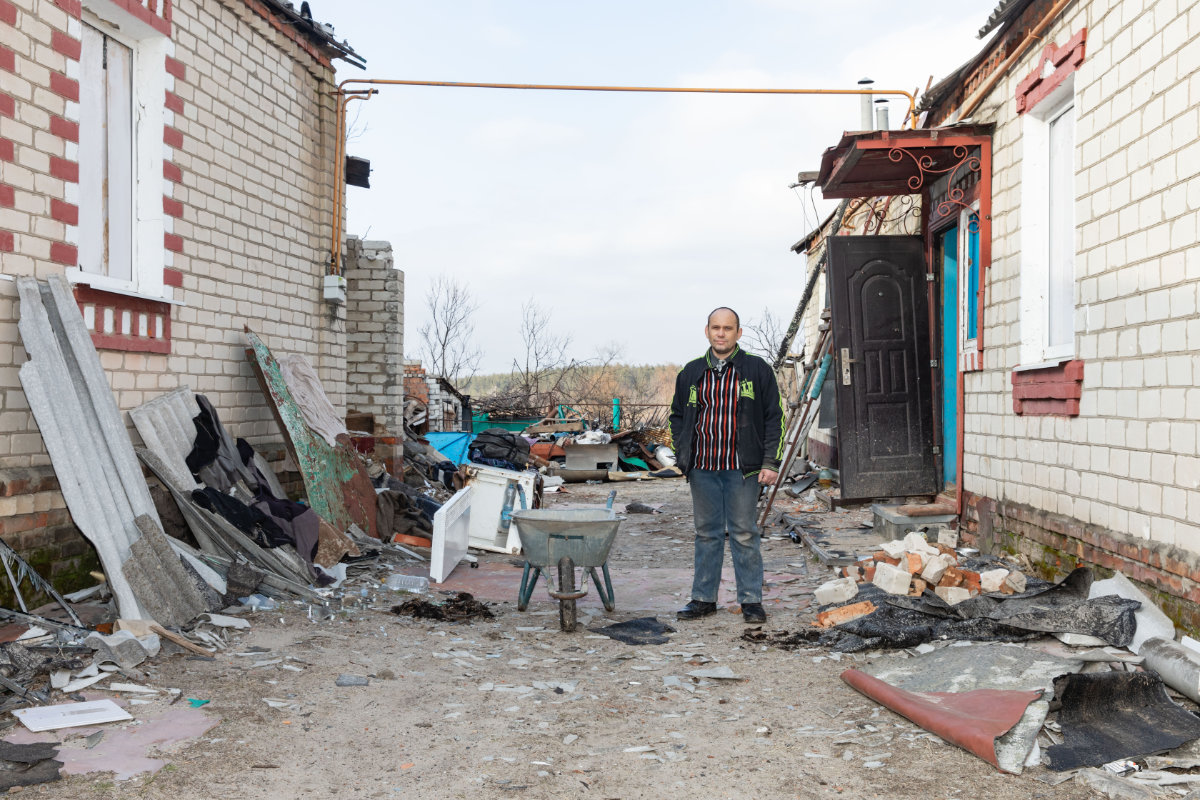
Yuriy, a farmer from Kharkiv, at his damaged home. (AN photo by Mykhaylo Palinchak)
“The building housed my parents, myself and my brother,” said Yuriy, pointing to his family’s damaged farmhouse.
“My father died of a heart attack. The conditions the Russians put us under didn’t aid his ailment. He couldn’t withstand it. He passed away. My mother and brother have relocated. I still return here from time to time.
“I don’t know where to start to rebuild. I think this will be the last time I am here.”
Despite their stalled progress, the Ukrainian armed forces stationed here remain in high spirits, but ever vigilant, their weapons trained on the horizon for signs of enemy activity.
“We are here to protect the border,” one soldier, who went by the nom de guerre “The Director,” told Arab News from his underground bunker.
“The shelling is the hardest to get used to, but we are here to protect our motherland. The shift keeps rotating and we are always on the lookout. There is no way back from here. We have enough food and warm clothes but we need more weapons. The Russians are not welcome here and we will not stop till we defeat them.”
Opinion
This section contains relevant reference points, placed in (Opinion field)
Several of the men serving in The Director’s battalion had little or no combat experience prior to their deployment, working as lawyers, teachers and civil servants, yet all have quickly adapted to their new realities. Few have seen their families in months.
“I took my children and wife to safety, but this is my town,” Ihor Reznik, commander of the Kharkiv Territorial Brigade, told Arab News. “We made it through hard battles. Now there is random shelling and we try to respond adequately. We need drones for survey and we need proper armored vehicles.”
Reznik’s daughter Anna, aged 25, serves in the Kharkiv Territorial Defense Battalion’s 127th Brigade. Before the war, she studied mathematics and computer science at a university in France.
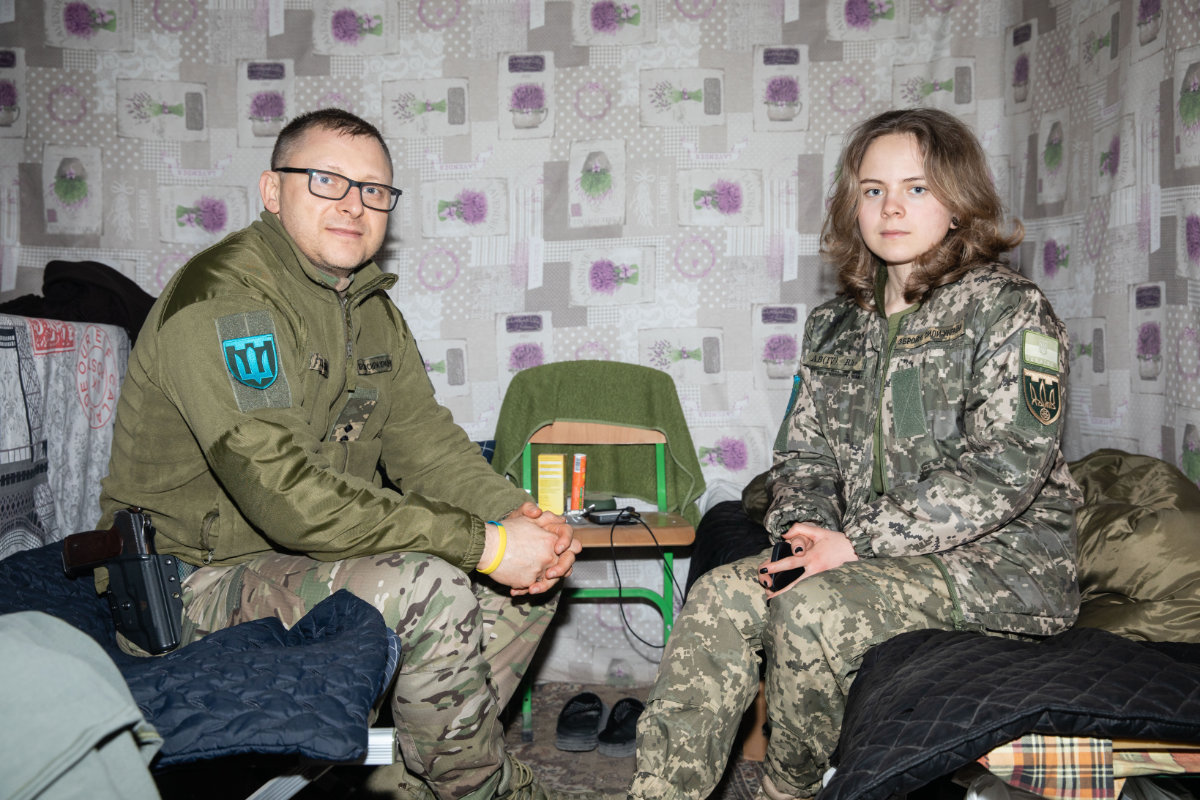
Commander Ihor Reznik with his daughter Anna at the 127th Brigade base in Kharkiv region, Ukraine. (AN photo by Mykhaylo Palinchak)
Although she was close to graduation, she chose to quit her studies in order to join her father’s brigade, where she now serves as a military photographer for its press department.
“It’s always been a hobby, but now it is my way of serving in this war,” she told Arab News. “At the beginning, my parents were against it, but came to understand it was my decision. I need to document what is happening.”
And although she has frequently found herself in life-threatening situations while working in the field, she believes her commitment to the cause of documenting the conflict helps her to remain calm while under fire.
“When one has not been faced with such situations, one doesn’t know how to react. But I remain calm,” she said. “The camera is my weapon. No matter how difficult it gets, I never regret my decision. I know I am in the right place at the right time.”
